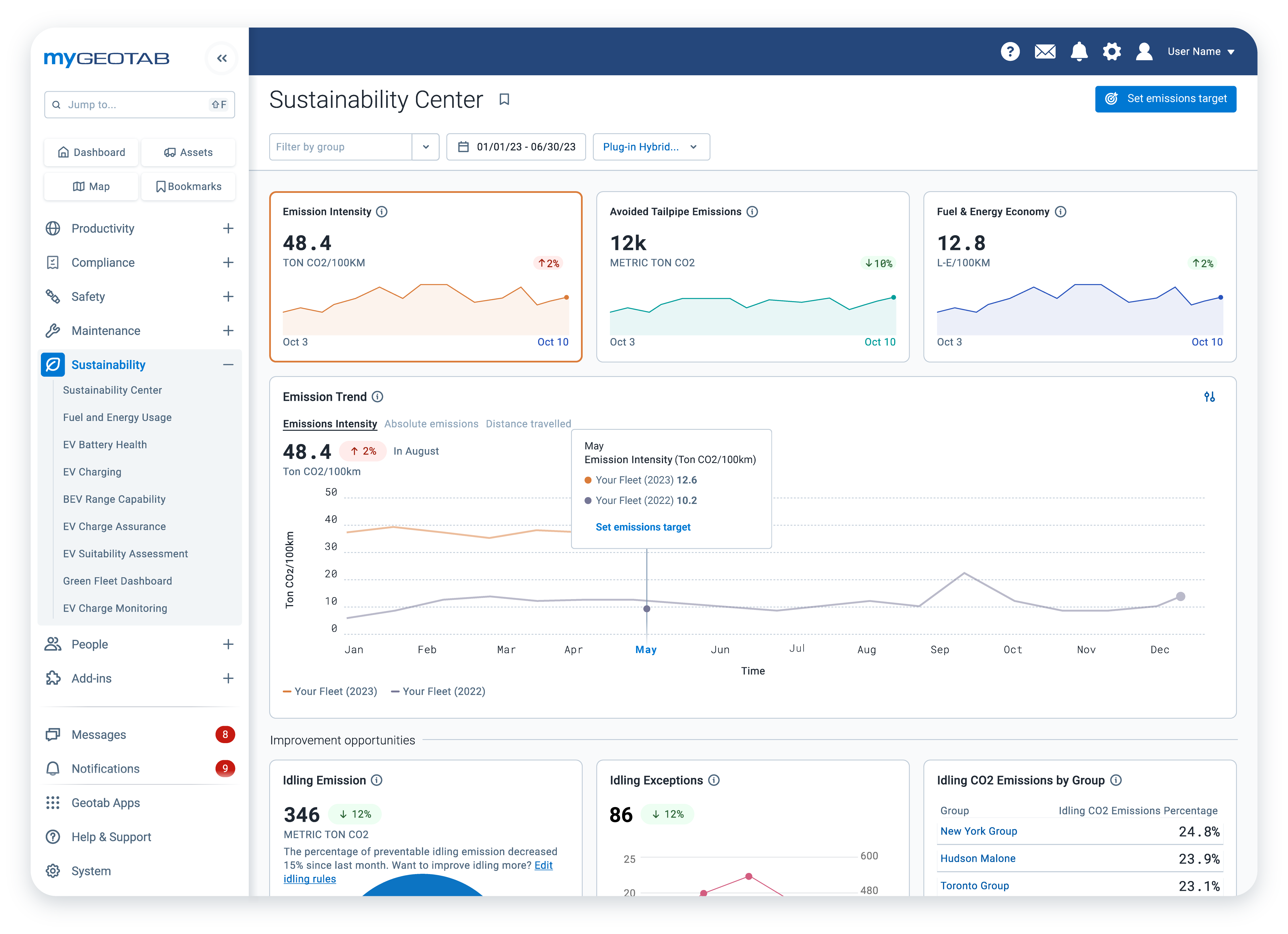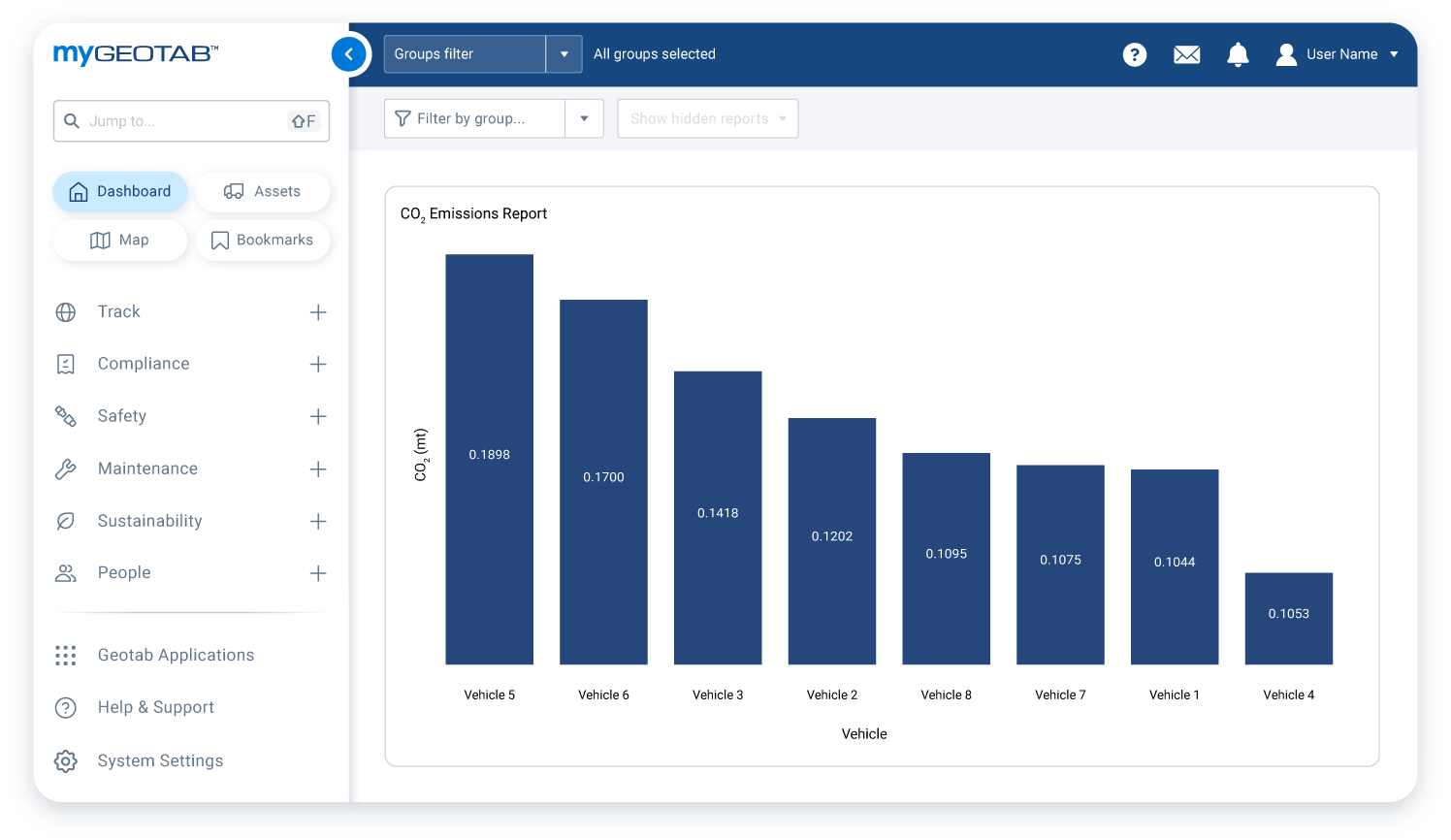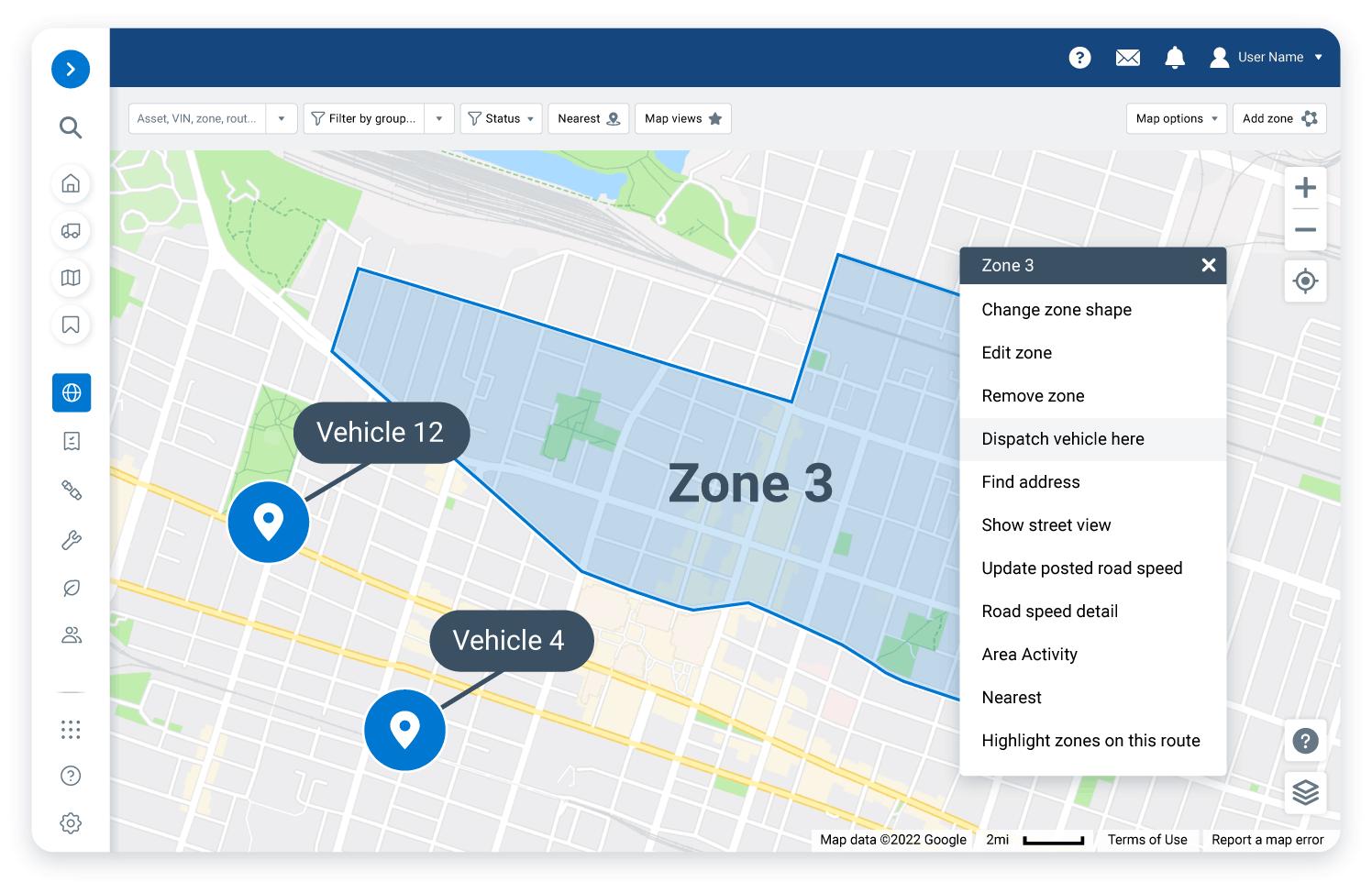Sustainability
Insights to help fleets reduce emissions
Set fuel economy standards across your fleet
Monitor engine idling trends
Track EV performance, usage and cost savings
Use route planning to save time and fuel

Reduce your fleet's fuel consumption
Set and achieve fleet-wide CO2 emission targets
Manage costs with improved operations
Transform your fleet with electric vehicles
Sustainability solutions from Geotab Marketplace
Take the next step
Let us show you how our easy-to-use solutions can help manage fleet vehicles at all levels.
Video
Work with a partner as committed to climate action as you are
Sustainability is at the core of everything we do at Geotab, minimising the environmental footprint of our internal operations to developing innovative technologies that help fleets reduce CO2 emissions.
Resource
Adopting Electric Vehicles and Sustainable Fleet Strategies workbook
A tool for building a business case for the creation of a more environmentally friendly and efficient fleet.

Commonly asked questions
What are sustainable fleet management practices?
Sustainable fleet management refers to activities centered around reducing the environmental and social impact of fleet vehicles, including strategies such as:
• GPS tracking
• Monitoring and training drivers to encourage fuel-efficient and safe driving behaviours
• Reduction of idling and greenhouse gas emissions
• Adoption of electric vehicles (EVs) including plug-in hybrid (PHEVs) or battery electric vehicles (BEVs)
• Rightsizing of vehicles to the correct duty cycles
• Use of alternative fuels
• Car sharing
• Considering alternative modes of transportation altogether
• Creation of preventative, rather than reactive maintenance programs
How can Geotab help with sustainable fleet management?
Geotab offers a full range of sustainability solutions, including:
• EV fleet management to ensure fleets get the best performance and greatest value out of their electric vehicles
• Electric Vehicle Suitability Assessment to support and justify the transition to electric
• Environmental performance dashboards and reports to enable fleets to reduce their emissions of greenhouse gases (GHG) and other pollutants
• Vehicle tracking to enable fleet and dispatch managers to optimise routing and reduce transport mileage
• Data insights to enable local authorities and other government agencies to improve traffic safety, reduce congestion and improve local air quality
What are the benefits of green fleet management?
Green fleet management has a tremendous amount of benefits for fleets, including:
• Reducing the organisation's carbon footprint through supporting fuel efficient driving behaviours, better route management and/or use of alternative-fuel vehicles with fewer to no emissions
• Lowering long-term costs, such as spending less on fuel, oil, maintenance and even insurance, by reducing the occurrence of at-fault collisions
• Complying with any applicable emissions regulations
• Improving driver morale and staff retention rates





